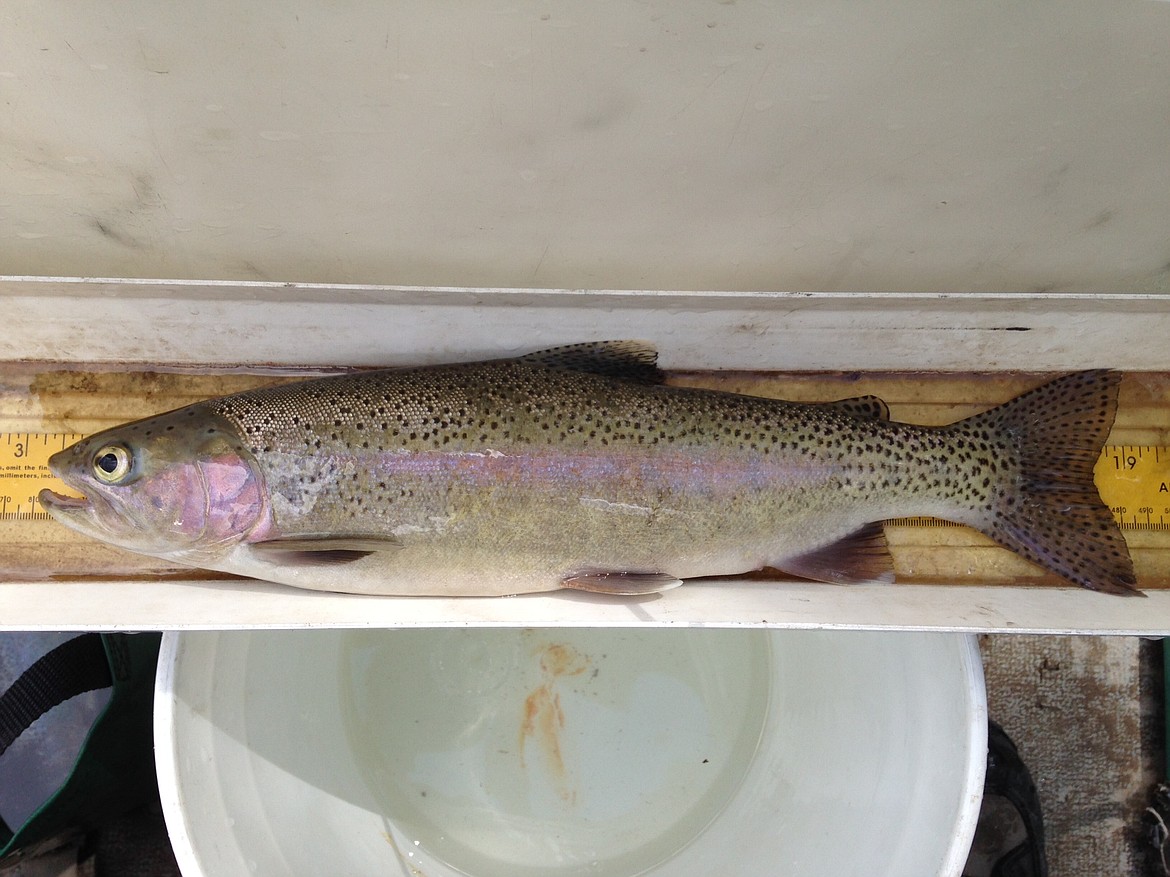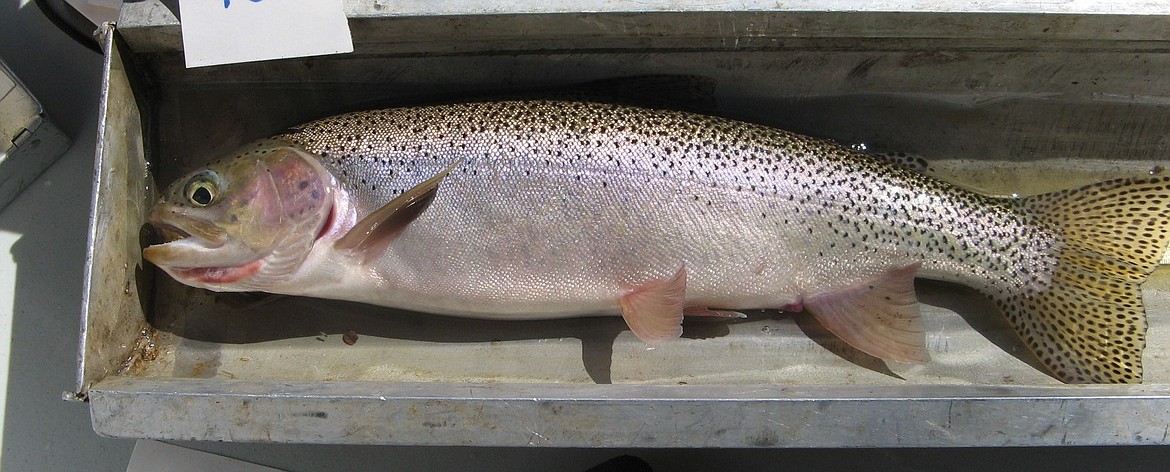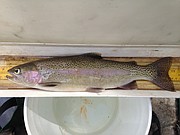Crossbreeding between trout poses a threat to Montana's state fish
Hybridization between native cutthroat trout and invasive rainbow trout in the Flathead Valley could prove a major cause of biodiversity loss and a harm to native species, according to a recent study by Montana Fish, Wildlife and Parks and the U.S. Geological Survey.
Montana’s state fish, cutthroat trout are native to the mountain west, including in the Flathead Valley; they have evolved for hundreds of years to the landscape, since about the last ice age.
In Northwest Montana, the native species is called a westslope cutthroat trout. These trout are unique, especially to the Flathead Basin.
Humans brought rainbow trout into this area decades ago and the species was stocked by the state for fishing opportunities. Although an incredibly versatile fish when it comes to temperature, reproductive habitat and more, they are not as fit as the cutthroat trout are after hundreds and hundreds of years of evolving to the landscape.
Still, rainbow trout seem to have struck upon one way of making a go of it in the region: crossbreeding.
The state stopped putting rainbow trout in its waters 30 years ago. Research, though, shows an increase in hybridization throughout the basin in the past 10-15 years. Over the last 20-30 years, there is evidence of a large spread of hybridization, despite the fish population staying stable. More and more cutthroat trout, over the generations, are born with rainbow trout genes.
According to the study, recently published in the scientific journal Proceedings of the Royal Society: Biology, non-native invasive genes boast a higher rate of dispersal. Simply put, rainbow trout and hybrids disperse, or spread, throughout more space in less time than cutthroats. The process is known as spatial sorting.
Typically, cutthroat trout spawn in the same stream that their parents spawned in, meaning they have low levels of dispersal — they stay in the same general area. Rainbow trout and hybrids, however, will spawn in streams they were not born in, further spreading their genes throughout the basin.
Typically, hybrids are scientifically less fit and produce fewer offspring. That should limit the spread of those genes, but that’s not happening in the Flathead Basin. That paradox may be “the most important part of the study,” noted Timothy Cline, an ecologist with the U.S. Geological Survey’s Northern Rocky Mountain Science Center.
A major factor, according to the study, appears to be genetic dispersal.
Over the past seven years, the research team collected data and samples from trout across the Flathead Valley. The North Fork of the Flathead River is unique because it has one of the best intact cutthroat populations in the country; most have been fragmented by human use and dominated by rainbow trout elsewhere.
The study, published in mid October and titled “High dispersal rates in hybrids drive expansion of maladaptive hybridization,” shows that the genetic basis for increased dispersal in hybrids contributes to the rapid expansion of invasive crossbreeding, leading to an overall threat to all subspecies of cutthroat trout.
The study’s message is “pretty clear,” said Sam Bourret, its lead author and an FWP biologist.
“Hybrids are straying more throughout the system,” he said.
There are many possible ways to address the issue, including isolating cutthroats in the headwaters of the Flathead and suppressing rainbow trout and hybrids with manual and chemical removal.
“We are trying to get our findings out to the public,” Bourret said.
In a way, it is now a matter of preserving the native cutthroats the Flathead has left.
“You can catch rainbow trout anywhere. You can’t catch cutthroat trout everywhere,” he said.
Reporter Kate Heston can be reached at kheston@dailyinterlake.com.





